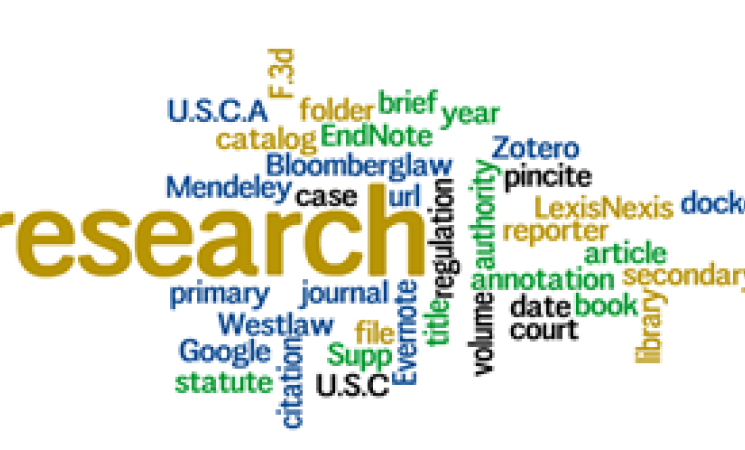Keeping it Together: Choosing a Research/Citation Management System that is Right for You

Research and citation management tools help you gather and organize your resources and data into a personal customizable library.
- Import citations and catalog records from databases, websites and library catalogs. You can also manually enter citations from books and other nondigital resources
- Build and organize bibliographies.
- Format citations for papers and briefs.
- Annotate and highlight articles and save them in your collection of citations.
- Save and organize PDFs, screenshots, graphs, images, and other files for your research.
One major drawback for law students is that none of these tools works well with Westlaw, LexisNexis, or Bloomberglaw. However, these tools are great at pulling out metadata from databases such as HeinOnline, library catalogs, and websites. They also work with the biggest science and social science databases such as JSTOR, PUBMED, and Web of Knowledge.
Choosing which research/citation manager works best for your needs can be a process of trial and error. Here are some considerations to keep in mind when deciding which one is right for you:
- Format- Is it web based or stand alone? Does it sync across devices (can you use more than one laptop/tablet/phone and still access your libraries)?
- Cost-What does it cost? Some are free but charge for storage. Others are free while you are in school.
- Learning Curve- As a new system how long does it take you to learn and what type of user support is available – your librarians know a lot but they don’t know everything about every system so you may need help to troubleshoot.
- Importing Metadata- metadata is the fancy librarian word for the information about stuff. For example, If you are looking up a book in our catalog the title, author, publisher, pages, size, subject headings is metadata. Metadata is the building block of citation
- How does the manager interact with PDFs and Websites? A lot of web research involves PDFs and articles/blogs- does the manager automatically attach the PDFs plus the metadata? Does it allow you to manually attach PDFs to records? Can you clip webpages and keep the text or is it just the URL and title?
- Organization- how can you organize everything you collect? Folders? Separate libraries? Can you tag to find later? How do you prefer to stay organized?
- Integration with Word/word processing software- Getting all of your sources organized is one aspect of the these tools but another great feature is the ability to integrate with word so that you can add footnotes and in sentence citations.
RESOURCES:
A recording of law library’s workshop on choosing the best citation manager for your needs can be found here. Slides from the workshop are available at the end of this post.
To learn more about the most popular research/citation managers and their functionality check out the following research guides:
- Research Management and Citation- The Yale Law Library’s guide to Zotero, RefWorks, EndNote, Mendeley, and Evernote.
- Yale Library Citation Management Guide.
- Georgetown Law Library’s Citation Tools and the Bluebook, a Comparison.
